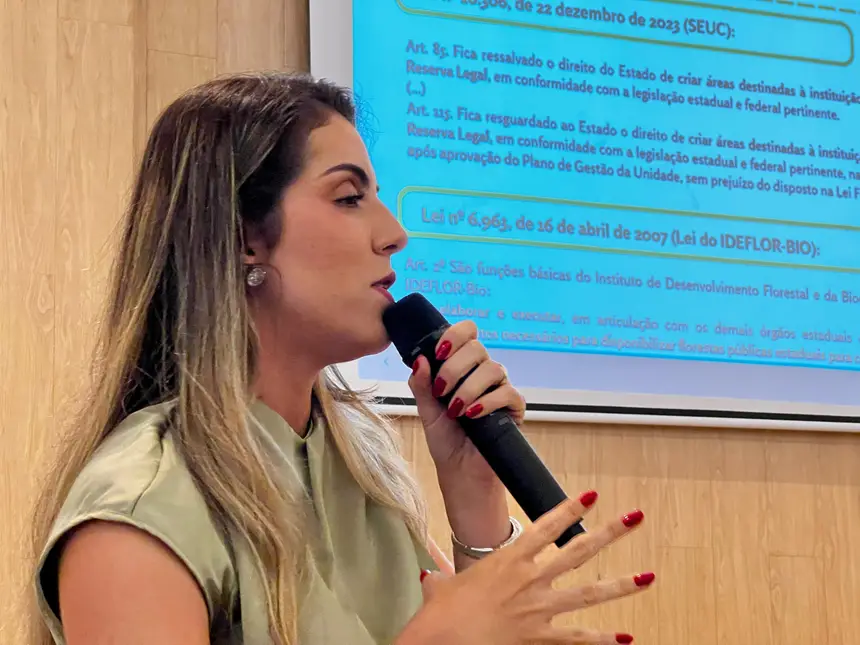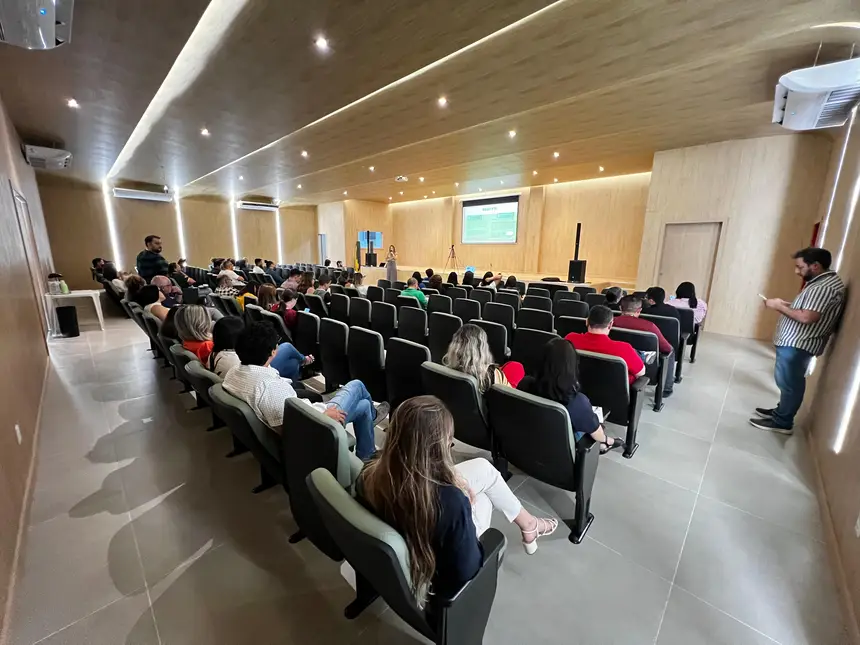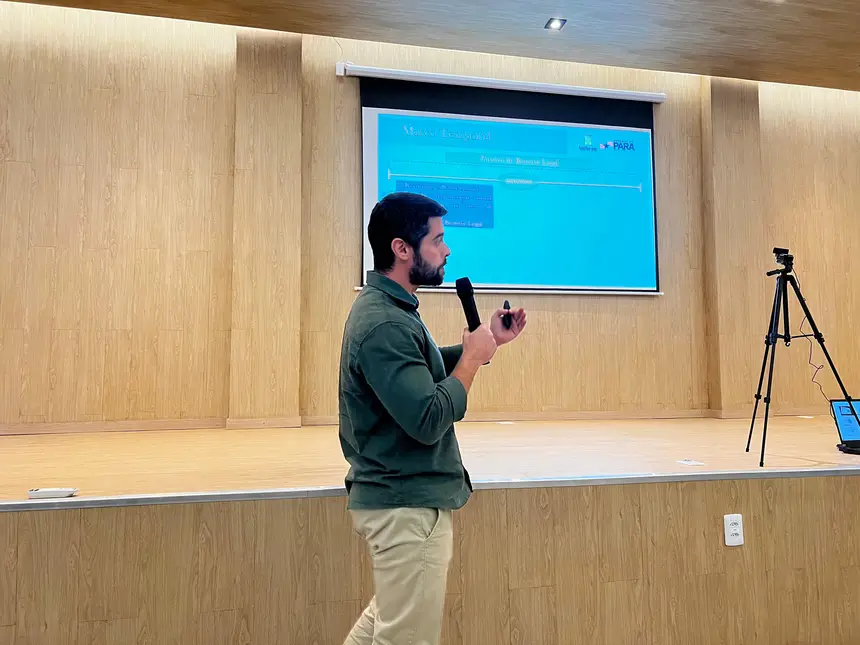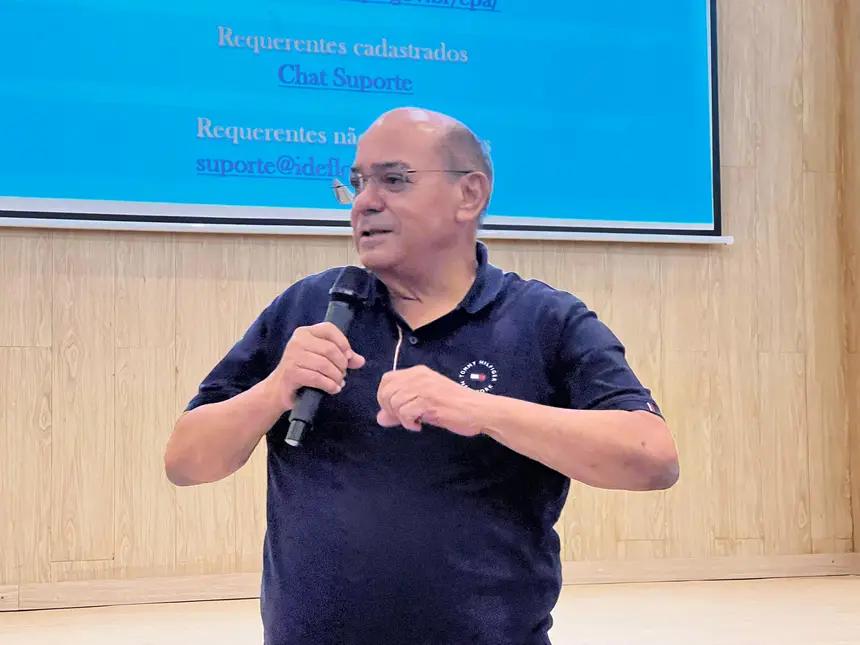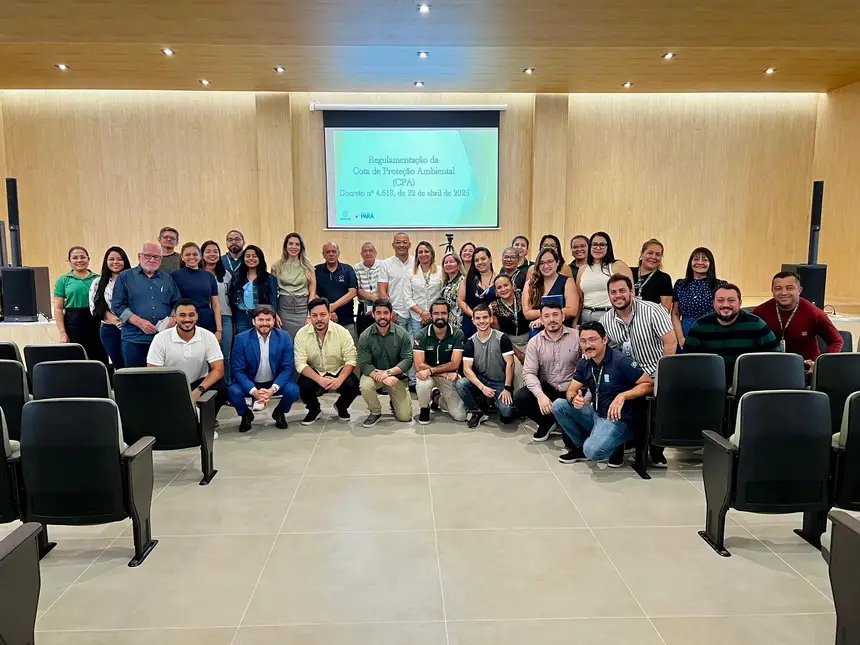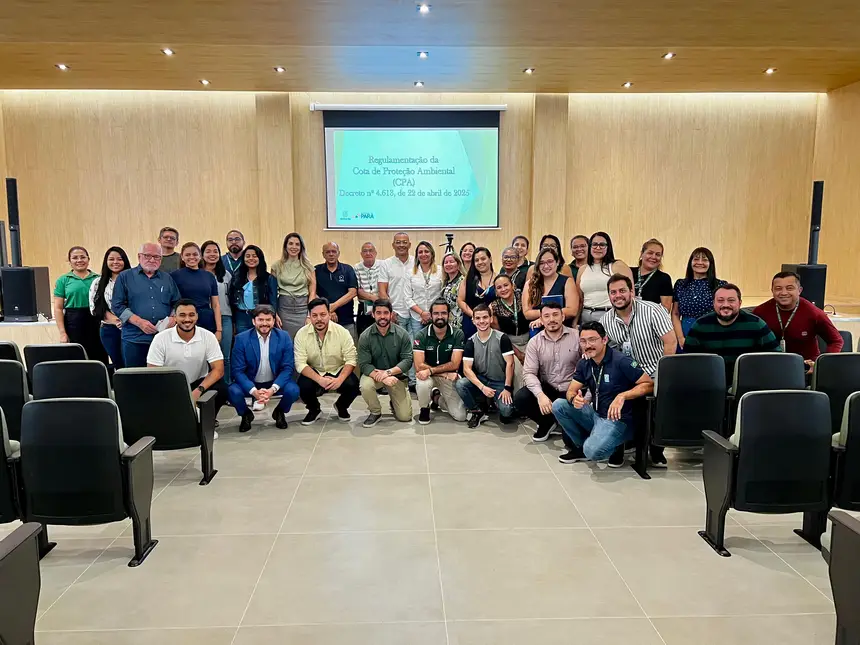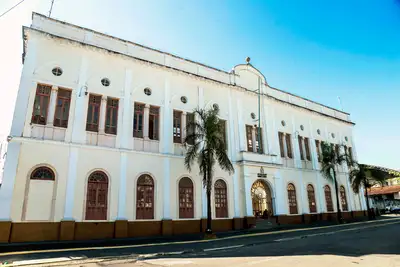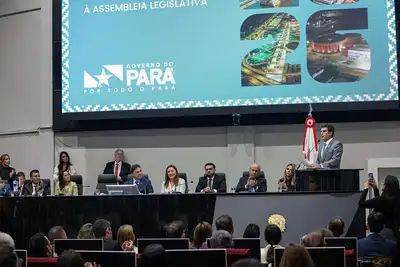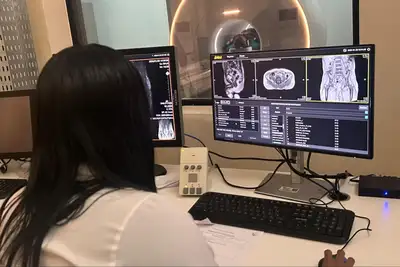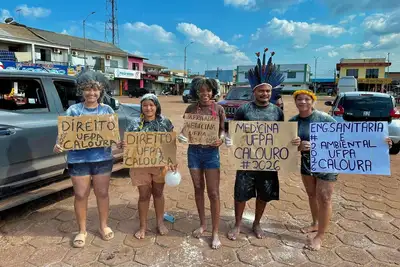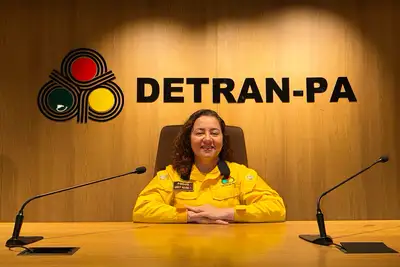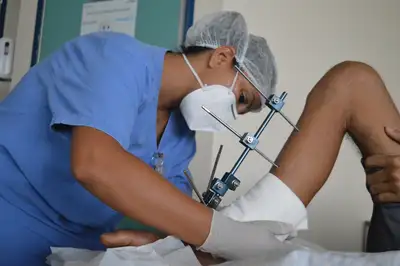Ideflor-Bio trains civil servants from the capital and the countryside on Environmental Protection Quota
The event aimed to strengthen institutional action in the management of one of the most innovative instruments of Pará's environmental policy
The Institute of Forest Development and Biodiversity (Ideflor-Bio) held a technical training on the Environmental Protection Quota (CPA) this Tuesday (30), aimed at civil servants from the headquarters and regional offices. The meeting took place in a hybrid format, allowing for both in-person and virtual participation, and sought to strengthen institutional action in the management of one of the most innovative instruments of Pará's environmental policy.
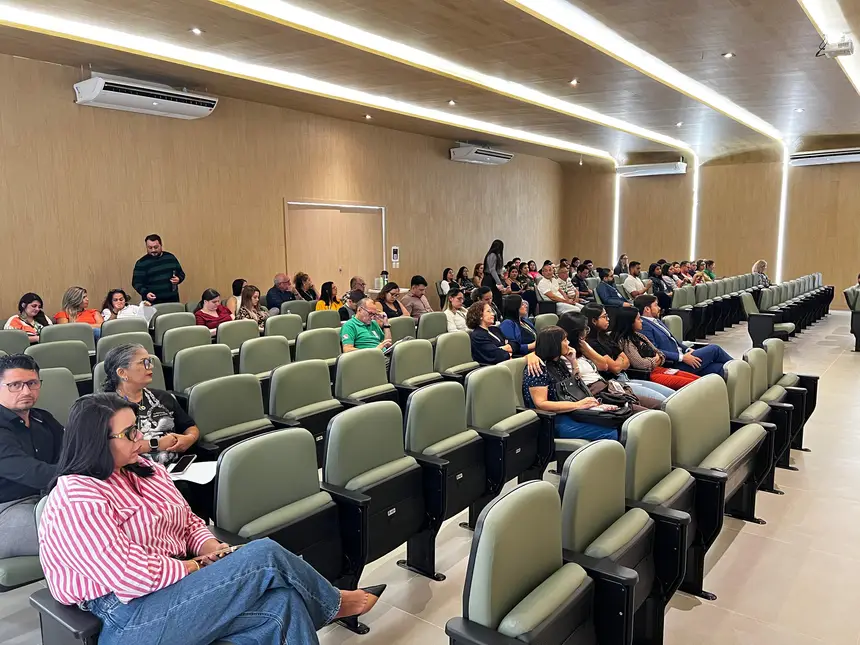
The training was conducted by the municipal attorney Elen Moura and technical advisor Thiago Valente, who presented the technical and legal aspects of the CPA, highlighting its potential to integrate environmental conservation with economic development in the countryside. The proposal was to provide civil servants with greater security in the practical application of the instrument and to expand the capacity to meet societal demands.
Participants understood the functioning of the CPA as a mechanism for environmental regularization for rural properties with a legal reserve liability, consolidated until July 2008. In these situations, the rural producer can acquire quotas linked to state-protected areas, ensuring the legal compensation of their property. Each quota corresponds to one hectare of forest and is valid for 15 years.
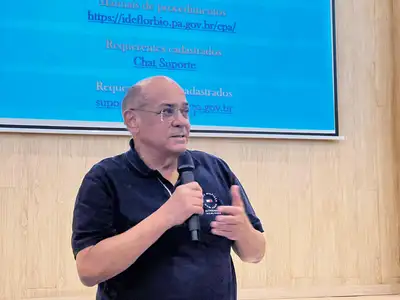
Development - The president of Ideflor-Bio, Nilson Pinto, emphasized that the CPA inaugurates a new model of integration between production and conservation in Pará. “Economic production finances environmental protection. And environmental protection enables economic production. This is the logic of a policy that has the power to unite two historical interests of Pará: the development of the countryside and the conservation of the forest,” he stated.
In addition to explaining the compensation mechanisms, the training addressed the non-compensatory quota, aimed at individuals or legal entities who wish to voluntarily contribute to environmental preservation. In this case, the amount is R$ 60.00 per hectare, an additional instrument to raise permanent resources for the 29 state Conservation Units.
Multipliers - The initiative is part of Ideflor-Bio's ongoing training calendar and seeks to consolidate an increasingly prepared team for environmental management. In the assessment of the civil servants, the training was also a space for exchanging experiences and reaffirming the collective commitment to forest conservation and sustainable development.
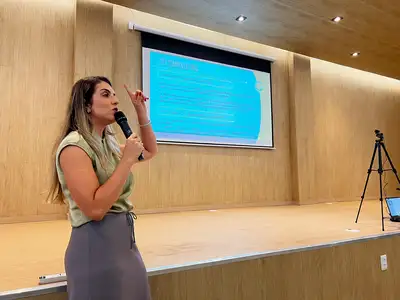
For Elen Moura, the meeting was essential to align the technical and legal understanding of the CPA among Ideflor-Bio's civil servants. “Our goal was to provide in-depth knowledge about this new legal instrument and to train the technicians to apply it effectively in their daily work. The regulation of quotas represents an important advance in reconciling economic development and environmental preservation. The ongoing training of civil servants is essential for Pará to be prepared to implement modern and effective biodiversity conservation policies,” she emphasized.
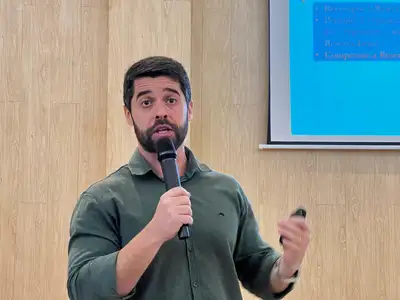
The technical advisor Thiago Valente reinforced the strategic role of professional updating and integration between teams from the capital and the countryside. “This training strengthens Ideflor-Bio's institutional capacity and ensures that all civil servants, regardless of where they work, are able to guide producers, communities, and other social actors about the benefits and steps of the CPA. It is a collective construction that expands our presence and credibility throughout the State,” he added.
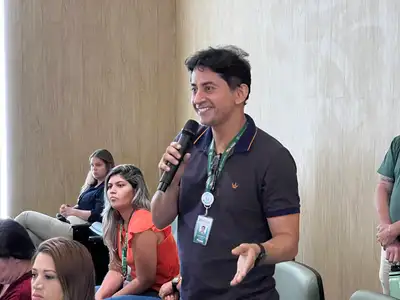
Integrity - Another point highlighted was the legal security provided by the instrument. The process of acquiring CPAs is entirely digital and available on Ideflor-Bio's website, with the issuance of an electronic certificate that guarantees the integrity of the forest cover and the land regularity of the linked areas. This modernization helps to simplify environmental regularization, unlock bottlenecks in the countryside, and enable access to rural credit and sustainable markets.
Nilson Pinto also emphasized that strengthening the CPA is strategic in light of Pará's climate commitments. “We are building a public policy of international impact. The CPA reinforces our responsibility towards Amazonian biodiversity while creating opportunities for the countryside. It is an instrument that demonstrates how Pará can lead innovative solutions to the environmental and economic challenges of the 21st century,” stressed the president of Ideflor-Bio.


